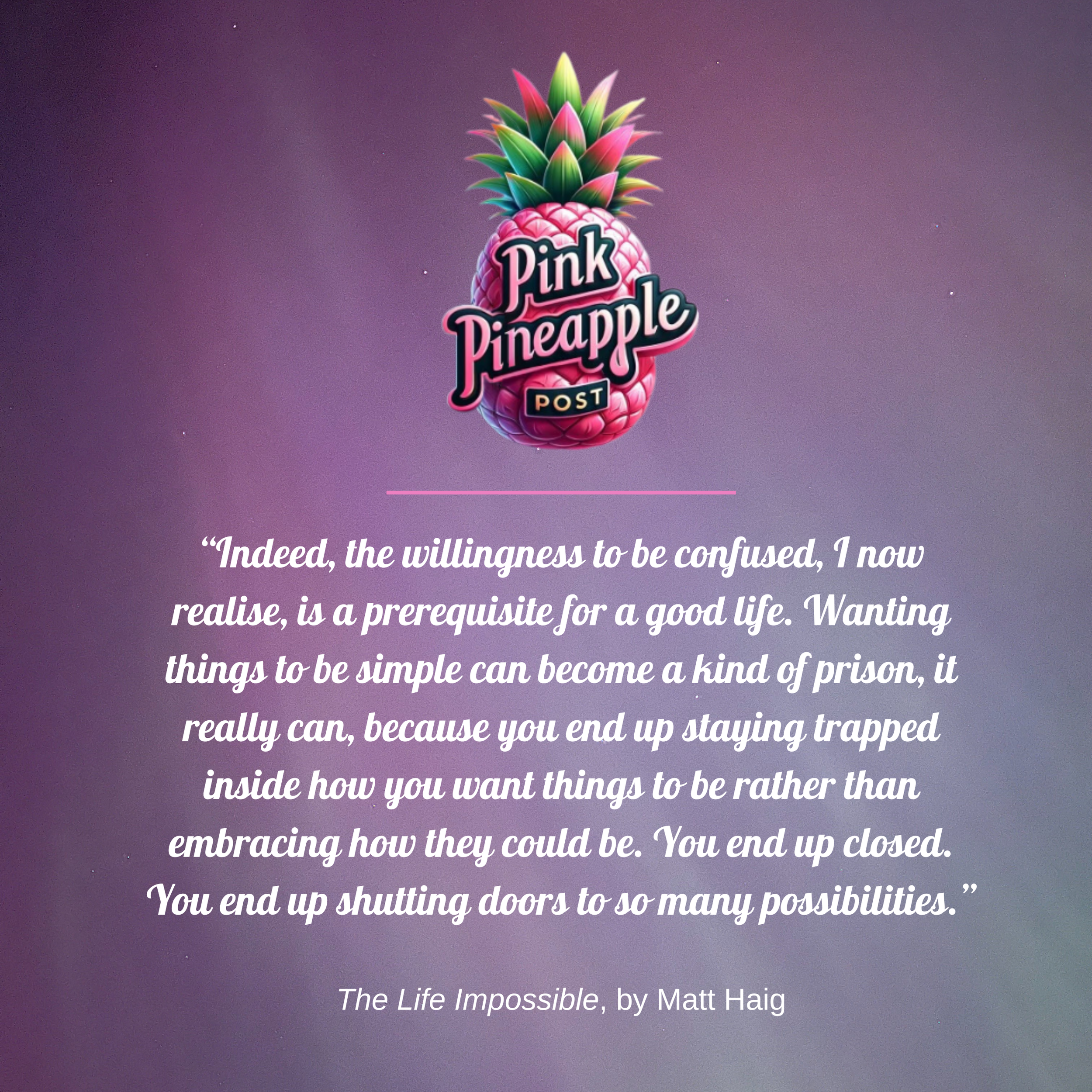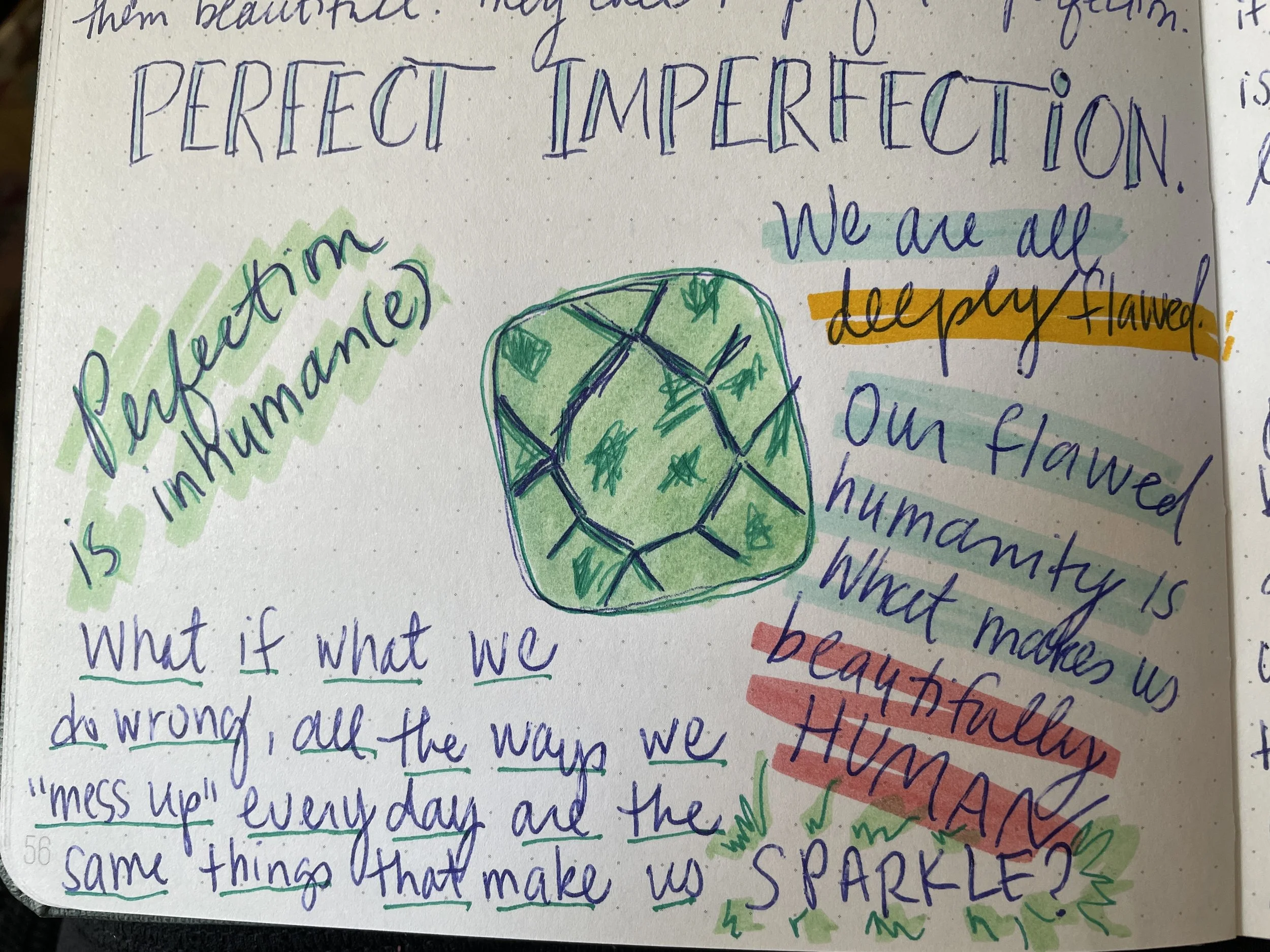The Life Impossible: Longing for Ibiza
A Story Filled with Unreal Magical Realism Brims with Real-Life Truth for Living Fully
Throughout almost 25 years of longing to go back to Spain after studying a semester there during undergrad, I’ve never once wanted to set foot on Ibiza—until meeting Grace Winters, that is. She’s the unexpectedly compelling and delightful protagonist of Matt Haig’s novel The Life Impossible. When she suddenly and strangely inherits a home in Ibiza left to her by a mysteriously disappeared long lost friend, the 72-year-old retired maths teacher and widow leaves her stagnant home in England and takes up residence on the sun-drenched island known for all-night dancing and overall party vibes.
Friends, that’s when things start to get really weird in the best way. Inside the house left to her by her long-ago friend, Grace finds a glowing jar of water, books about alien life, mind-reading and fortune telling, as well as clues to the life lived in the small Ibiza home. Haig’s story felt written for me personally, in the way it weaves together disparate threads I’ve been tugging on recently. A mathematical mindset wends its way through the story in the shape of Grace’s observations of what she sees and experiences. The evocative metaphors available through the language of mathematics have been looming large for me lately. As someone who has felt alienated by math for much of my life, metaphor has been an accessible bridge that illustrates how math is just another form of storytelling. As Grace observes, separating math from language is a human construction, not a reflection of reality. In fact, the lines between anything and everything are arbitrary dividers. For instance, we categorize plants as having a right to be there or not.
But as Grace points out: “Of course, weeds don’t really exist. They are only a matter of perception. If someone doesn’t like a dandelion growing on their lawn, they will call it a weed out of spite, because we human beings have to draw a line between everything. Us/them. Mathematics/poetry. Weed/flower.”
Magical Unfolding, Without and Within
Soon enough, Grace is pulled into a mysterious undercurrent (literally and metaphysically), a sort of alien presence under the ocean called La Presencia that opens up new dimensions within and without. Experiencing her inner unfolding felt closer to real life than to magical realism to me, like decoding the secrets of our own brains, tapping into the latent power already there, versus being bestowed talents by an otherworldly life form. Granted, some of the abilities gifte to Grace by La Presencia are squarely in the realm of fantasy (for now). She is able to read others’ thoughts, for example. And can instantly understand and speak any new language. Additionally, she can signal to animals, who can understand and heed her call.
Her biggest breakthrough, however, is a deep, empathetic and loving understanding of herself that allows her to let go of the harmful thinking patterns and self-beliefs she’s harbored and nurtured over decades. In short, by changing her mind she is able to unlock and unleash the full powers of the gifts she’s been given by La Presencia. She’s able to let go of the binary thinking that blocks us from understanding our fundamental interconnectedness, and hold conflicting dualities in a single sphere.
“We have the unbreakable and the eternal inside us. We have the universe in our blood and bones. You see, if you want to visit a new world, you don’t need a spacecraft. All you need to do is change your mind,” Grace observes.
The Hard Work of Knowing
In a world with such external focus, where we outsource more and more of our inner workings first to smartphones, now to AI, where algorithms will soon have the power to predict our behaviors before we ourselves know what we are going to do, to notify us of an illness before we feel the first symptom, to count our vote before we cast it, perhaps the most important work we can do as human beings is to understand ourselves fully and deeply.
Yes, it’s far-fetched to imagine a person could become a mind reader, and yet. Technology already exists that can decode thoughts as words before they are spoken. Even instant understanding of new languages seems within reach, especially if at some point we can merge with AI as some futurists like Yuval Noah Harari hypothesize will inevitably happen given our current trajectory.
In that context, it’s crucial that we understand as much as we can about how our brains work. We have to tune in to our emotions and engage with them to understand what they mean. If we don’t, we will be manipulated in ways we won’t even see until it’s too late. To me, this is the most realistic and also the most exciting part about Grace’s journey. By embarking on the difficult work of understanding herself, she simultaneously unlocks a much greater understanding of others as well. The lines between things dissolve because she has literally changed her mind.
AI and algorithms are inextricably linked to neuroscience, which is both exhilarating and frightening. We are discovering more about the human brain than ever before, and it’s our responsibility to understand as much as we can about how it works.
As I learn more about this space, I realize just how little I truly know and understand about myself on a fundamental level. And how difficult the work is to intentionally know myself. Grace captures the idea well: “Every single person on this planet is a context and the circumstances of that context can never be seen fully. We are all mysteries, even to ourselves.”
But just because we cannot understand it all fully doesn’t preclude us from trying. As Grace comes to understand, clarity can only be found by passing through confusion. “Indeed, the willingness to be confused, I now realise, is a prerequisite for a good life. Wanting things to be simple can become a kind of prison, it really can, because you end up staying trapped inside how you want things to be rather than embracing how they could be. You end up closed. You end up shutting doors to so many possibilities.”
Today I Am the Youngest I Will Ever Be (also the Oldest)
On a much more outward and mundane level, Grace also spoke to me as a woman, as a person coming to grips with being at the midpoint in life, with the vector of the rest of my life pointing in the direction of aging. “I had spent a lifetime hating my appearance in the present and then appreciating it in retrospect. No doubt there was a ninety-year-old Grace in the future who was wondering why I didn’t like the way I looked at seventy-two,” ruminates Grace. “If only we could always have the perspective of the future with us as we live that present. Sure, in each moment we have never been so old, but we are of course also the youngest we will ever be.”
She goes on to say: “But it was also being old, being a woman, it was how I was conditioned to be. The way we judge our bodies. The way, as we become increasingly invisible with age, we still clutch tight to that self-consciousness. The way we curse the thing that has kept us alive all this time.”
Part of getting to know ourselves is reveling in our being – our bodies, our minds – of the now. The freedom of a pre-dawn walk, of feeling cool lake water on my bare skin, stretching into a familiar-yet-ever-new yoga pose. Of wearing pigtails to work—because why not? Because who says I’m too old?
Holding On and Letting Go
Maybe at the core of Grace’s story is an idea of expansiveness, of spaciousness, of creating room to hold conflicting truths simultaneously. Of letting go and yet making sense in the act of releasing what you have always thought to be true.
“This is the challenge of life, isn’t it?” queries Grace. “Moving forward without annihilating what has gone before. Knowing what to clasp onto and what to release without destroying yourself. Trying not to be the meteor and the dinosaur at once.”
We aren’t one thing or another, nor are we as separate as we sometimes feel or believe.
“Our minds swell into each other like a million currents at sea. We merge, we converge. Everyone flows into everyone else without even realising. The walls between us are imaginary,” Grace comes to understand. “We think we are lonely because we are often blind to the connections. But to be alive is to be a life.”
So much of what makes us miserable exists only in our minds. As Grace observes:
“There is neither happiness nor misery in the world; there is only the comparison of one state with another, nothing more. He who has felt the deepest grief is best able to experience supreme happiness… The contrast of light and shade. Life is all chiaroscuro. […] But don’t think of the bad times as unrelated to the good. The dark is how we see the light. We need the contrast. We don’t see all the stars in the day, do we?”
Perfection Is Inhuman(e)
And finally, one of the simplest and deepest revelations of the novel, at least for me, is that we as humans are not perfect. Every one of us is deeply flawed – by design. It sounds like a cliché, but it’s a very real burden we carry around. This illusion that there is perfection, or that we can actually achieve it, or that deep down we are just an unworthy, unchosen piece of shit. Examine yourself deep down – is that a fear you carry? As Grace comes to understand (and as we all should strive to learn on a cellular, synaptical level), our flaws are our beauty. Did you know that authentic emeralds are actually judged as more beautiful for their flaws?
“They call it perfect imperfection. Only a fake emerald can be conventionally perfect,” Grace tells us. I’m working on believing it.
Beyond recognizing and accepting our own gorgeously flawed selves, Grace calls us to go one step further and extend that deepest love to others. But really, it’s something different and deeper than love that we all crave: understanding.
“People say that love is rare. I am not so sure,” Grace thinks. “What is rare is something even more desirable. Understanding. There is no point in being loved if you are not understood. They are simply loving an idea of you they have in their mind. They are in love with love. They are in love with their loving. To be understood. And not only that, but to be understood and appreciated once understood. That is what matters.”
The metaphor of an emerald’s perfect imperfection sparked this journal entry - is it a message you need to hear today, too?
For more on my thoughts on knowing brains, read this post.
To delve into more brain-based connections between The Life Impossible and Homo Deus by Yuval Noah Harari, read this.




